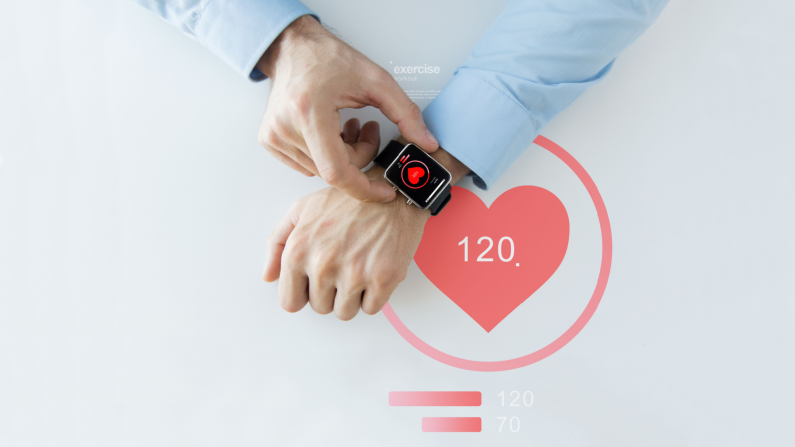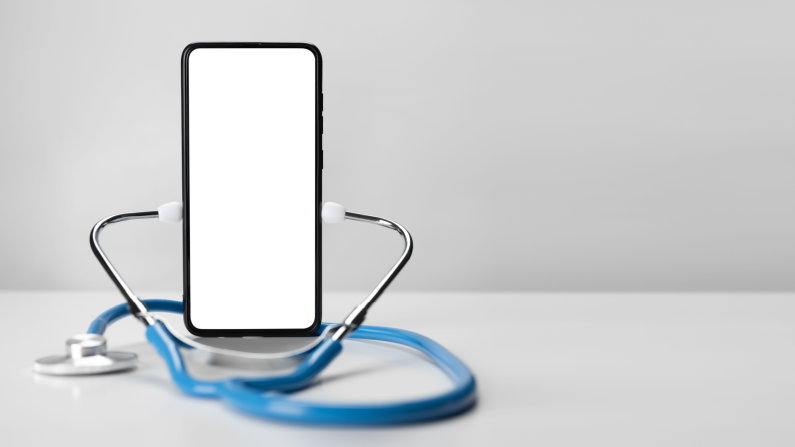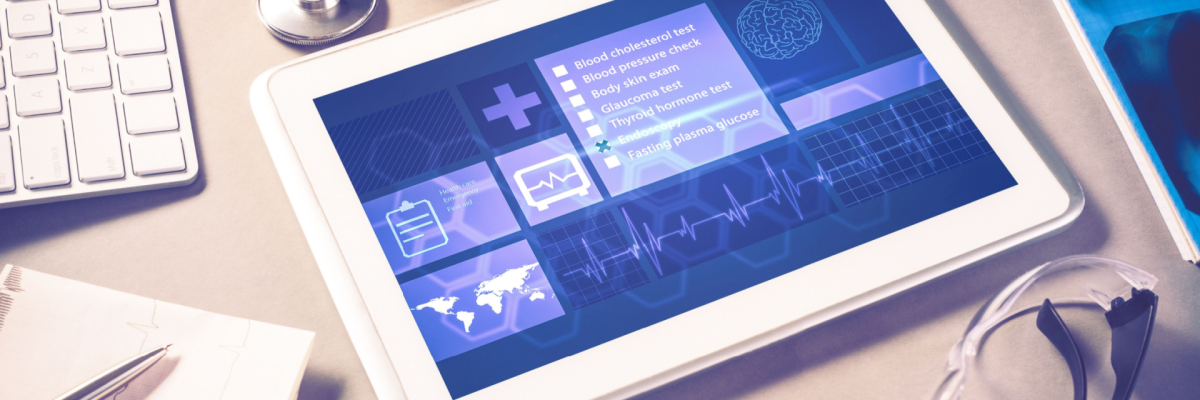Given the frantic pace of modern life, where most of us barely have time for a scheduled doctor’s visit, there’s a growing need for medical devices and systems that can be used independently.
Not for treatment, no – we’re still far from the fantastic capsules in “Elysium,” where you can climb in and emerge completely healthy – but for diagnosis. Imagine if your smartphone itself notified you that you’ve had an elevated heart rate five times in the past week, or that you’re experiencing sleep apnea. After all, timely diagnosis is key to a long and happy life!
Fortunately, in 2025, thanks to artificial intelligence and the rapidly advancing pace of technological progress, devices already exist that can monitor your health completely independently and, moreover, in real-time. In this article, we’ve compiled them for you, so you can stay healthy and make life easier for your doctor. And for dessert – useful mobile apps!
Home Gadgets You Can Use Today

If the first question that popped into your head was, “Who needs this?”, then we’ll answer: Absolutely everyone! You need to take care of your health from a young age. However, these gadgets and devices are most important, of course, for:
-
Elderly individuals. For those with years behind them and chronic ailments like hypertension or diabetes, daily monitoring of their condition is a tedious routine. Gadgets and apps are a way to make this routine much more pleasant and shift some of the control functions from themselves and their memory to external devices.
-
People with chronic diseases. They exist in practically everyone, and regular and accurate control allows you to keep them in check, avoid exacerbations, and lead a full life.
-
Anxious parents and children with weak immune systems. Noticing that something is wrong with a child in time and quickly obtaining a pediatrician’s consultation without dragging the little one around clinics is priceless! This saves nerves and time, and allows parents to be calm about their children’s health.
-
Adherents of a healthy lifestyle and athletes. If you regularly experience physical exertion, especially due to work, it’s important not to miss diseases of the musculoskeletal system and joints. Many gadgets and apps are designed specifically for analyzing your condition after workouts to prevent negative consequences.
Also, in some cases, such gadgets can be advised for hypochondriacs who can’t cope with their fears through psychotherapy (having a special program at hand is definitely better than spending thousands of dollars running to doctors). Those who simply take care of themselves and understand that you only have one body for life also need such gadgets and apps. After all, they can care not only about your health but also about your beauty.
For example, smart mirrors are no longer just a piece of furniture but a real health monitoring center. Imagine that every morning, when you look in the mirror, it not only shows your reflection but also analyzes your skin condition, measures your pulse, and breathing rate. Such mirrors are being developed today by CareOS, we’ve already mentioned them in our other articles, that’s how amazing they are. They can recognize even early signs of skin diseases, assess your stress level by your facial expressions, and give personalized skincare recommendations. In addition, smart mirrors integrate with other medical gadgets, and they will be able to provide an even more complete picture of your health by displaying data from fitness trackers, smart scales, and other devices. This means that you will be able to get comprehensive information about your physical condition without leaving the bathroom.
Smart bandages and dressings have also become a breakthrough in the field of wound care. They open up new opportunities for monitoring the condition of damaged tissues and significantly accelerate the healing process if you suddenly get injured. These devices, for example, from the startup Siren Care, are equipped with microscopic sensors that measure temperature, humidity, and other parameters in the wound area. All the information received is transmitted to a mobile application, to which doctors can connect to track the healing dynamics, detect signs of infection in time, and quickly adjust treatment.
And Arch Support insoles from Digitsole analyze your gait and foot condition. Thanks to the built-in sensors, these insoles measure pressure, tilt angles, and other parameters while walking, which allows you to identify postural disorders, foot problems, and even assess the risk of falling. This makes the insoles especially relevant for children, elderly people, and people with injuries or diseases of the musculoskeletal system. In addition, the mobile application records the information collected about your feet and offers personalized recommendations for choosing shoes, exercises, and injury prevention. And for athletes, smart insoles can become an indispensable tool for optimizing the training process and improving performance.
If you have become a victim of nighttime snoring - your own or your partner’s - technology will help you even here! And not only diagnose but even treat. For example, there is a snoring collar (don’t be scared, it’s comfortable) Night Shift, which uses biofeedback technology. When the device detects snoring, it sends soft and delicate vibrations that stimulate the user to turn to the side or slightly change the position of their body. This is usually enough to completely stop or at least reduce snoring.
For people suffering from asthma, a real guardian angel has also appeared – AirSonea. This compact and convenient gadget, which connects to a smartphone, analyzes breathing sounds and can identify the very first signs of an impending attack. Thanks to this, users can take the necessary measures in time, which allows them to avoid hospitalization and significantly improve their quality of life, for example, to have time to find an inhaler or call an ambulance. The AirSonea application also provides detailed reports on the state of breathing and helps to monitor the body’s response to medications.
Smart glasses, similar to those developed by Vuzix, are already being used to monitor health. Sensors built into the glasses can measure heart rate, blood oxygen levels, and even analyze vision. Imagine that you can just look at a person through these glasses and immediately see all their chronic diseases or why they are feeling unwell. The glasses also instantly send alerts about any deviations from the norm, so that with them almost anyone can become a doctor.
And, finally, Kolibree toothbrushes, which individualize oral care! Such brushes track exactly how the user brushes their teeth, determine which areas are not cleaned well enough, and give personalized recommendations for improving cleaning techniques. The connectable smartphone application also allows you to set up individual dental care plans and track your progress. This helps to significantly reduce the risk of developing tooth decay and gum diseases, which means – smile more often!
Top 5 Mobile Apps for Health Monitoring

Most gadgets have their own mobile applications, which must be downloaded before use, as it is the mobile applications that record and store all the information collected by the device. So, with the help of such applications, you can provide your doctor with a full report as soon as he returns from vacation, and not miss the moment when ordinary malaise turns into a real disease.
Here are five applications that stand out for their functionality, ease of use, and innovative approach to health care, some of which can even be used independently, without additional devices:
-
Ada Health – Your Personal Virtual Doctor
This is not just an application, but a bot that is always ready to help. It uses artificial intelligence to analyze your symptoms, provide preliminary diagnoses, and issue recommendations. You simply enter information about your complaints, and the application asks you additional questions to clarify the picture. Then Ada Health provides information about the possible causes of your symptoms, recommends contacting a specific doctor, or offers self-help tips. The coolest thing is that, if desired, the application easily integrates with various medical gadgets, allowing you to automatically upload data about your health and receive even more accurate and personalized recommendations.
-
Kardia - ECG Right at Your Home
Kardia is designed specifically to work with the KardiaMobile portable ECG device. It allows users to record an electrocardiogram at home and get an instant analysis of their heart rate. The app can detect signs of atrial fibrillation, bradycardia, tachycardia, and other dangerous heart rhythm disorders. Users can easily share ECG results with their doctors, which helps in the early diagnosis and timely treatment of cardiovascular diseases.
-
Withings App - Your Health Management Center
The Withings App is like a control panel for all your Withings devices. Smart scales, blood pressure monitors, thermometers, and other devices collect information about your health, and the Withings App systematizes it and presents it in a convenient and understandable form. You will be able to track weight, blood pressure, body temperature, and many other important indicators. The application provides detailed statistics, graphs, and charts, and also allows you to share data with your doctor. In addition, Withings App easily integrates with other fitness apps, such as Apple Health and Google Fit.
-
Glucose Buddy - A Diabetic’s Best Friend
This application helps to control blood glucose levels, track nutrition, physical activity, and medication intake. Users can record blood glucose data in the application both manually and using a glucometer. Based on the collected data, the application will provide you with a visual graph of how and why your blood sugar changed, thereby helping you make more informed decisions in your lifestyle and diet. In addition, Glucose Buddy also easily integrates with other applications and devices, such as Apple Health.
-
Sleep Cycle - The Secrets of Perfect Sleep Right in Your Smartphone
The Sleep Cycle application turns your smartphone into a smart assistant to improve your night’s rest. It uses your smartphone’s microphone or accelerometer to analyze sleep phases. So, it accurately determines when you are in the light and deep sleep phases, and wakes you up at the optimal moment so that you wake up refreshed and full of energy. The application also provides detailed statistics about the quality of your sleep, including its duration, effectiveness, and depth. Of course, expect recommendations based on this!
In 2025, personal diagnostics at home is no longer just a trend, but a must-have, especially for those who devote themselves to work and business. Innovative medical gadgets such as smart mirrors and bandages, combined with advanced mobile applications, guard our health even when we don't have time for it (which, of course, is bad, but understandable). However, it is important to remember that no technology can replace a full-fledged diagnosis and a visit to a live doctor, so you shouldn't get carried away with chatbots and home gadgets either. Take good care of yourself!
Share this with your friends!





Be the first to comment
Please log in to comment